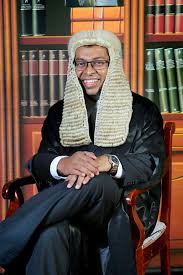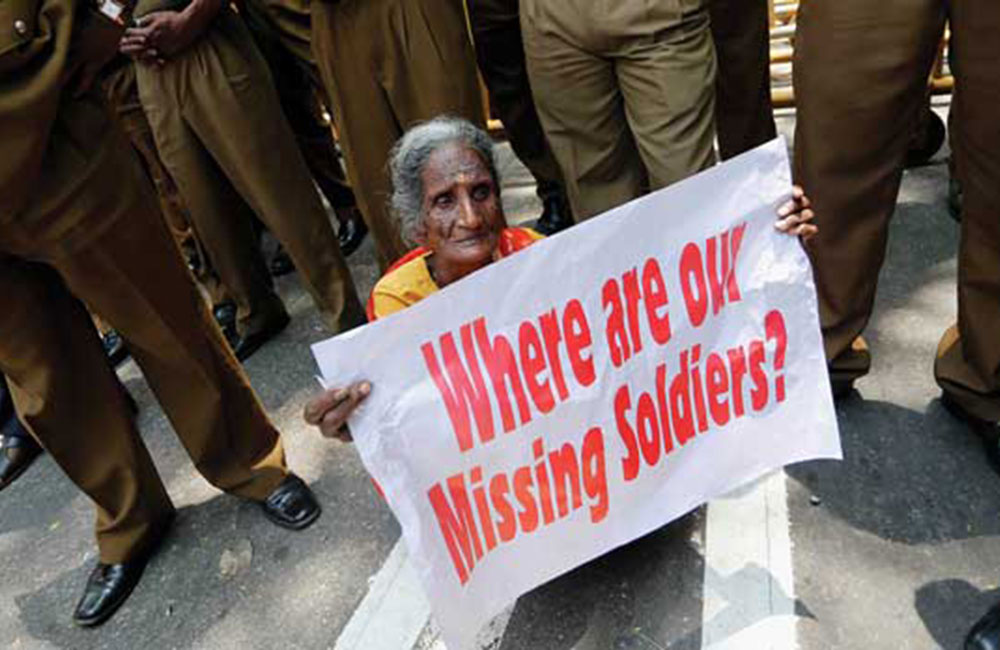The Chairman of the newly appointed Office on Missing Persons (OMP), Saliya Peiris PC, said that the OMP will address the missing and disappeared cases of both civilians and combatants, including several thousand members of the Armed Forces, Police and Civil Defence Force who have been identified as missing in action, in addition to members of various armed groups who were party to Sri Lanka's conflict.
 Main purpose of the OMP is to address the suffering of the many thousands of families living in all parts of the country whose loved ones have gone missing or disappeared during multiple conflicts in Sri Lanka.
Main purpose of the OMP is to address the suffering of the many thousands of families living in all parts of the country whose loved ones have gone missing or disappeared during multiple conflicts in Sri Lanka.
In a statement, Peiris added that the key tasks of the OMP will consist of (i) tracing missing and disappeared persons, clarifying the circumstances in which the act took place (ii) protecting the rights and interests of those missing/disappeared and their next of kin (iii) identifying avenues of redress for those affected and (iv) making recommendations to the relevant authorities in order to prevent the recurrence of such incidents.
Given the magnitude of the problem and the complexity with respect to the multiple tasks required to search for the missing and the disappeared, the OMP will function as a permanent office, as legislated. In its design the OMP is distinct from previous state mechanisms to deal with disappearances, which were temporary in duration, and served largely to document and recommend, as opposed to being a permanent institution tasked with investigation and tracing. lt will be the task of the present members to establish a credible, efficient and strong institution, which over a period of time will be able to provide relief to the many affected persons and communities.
In doing so, the OMP will ensure that the efforts of previous commissions to examine and investigate disappearances will inform the design of processes and structures of the OMP. In addition, the OMP will employ a consultative approach, speaking to victims and other stakeholders, whilst carefully considering key recommendations made to the Consultation Task Force on Reconciliation Mechanisms (CTF). Victim-centeredness will be a guiding principle for the operationalisation of the OMP. lt is, however, important to recognise that the OMP is one of four institutions and of multiple measures envisaged by the Government to ensure reconciliation and lasting peace within our nation.
The Chairman also stated that the seven members of the OMP represent a cross-section of society, comprising individuals who are experienced in the field of human rights as activists, public servants and professionals, including a family member of a disappeared individual and a retired legal advisor to the Sri Lanka Army. He reiterated that they are deeply committed to the welfare of all the victims of Sri Lanka's conflicts and conscious of the duties entrusted to them by Parliament.
"We are also mindful of the need to perform our functions impartially and objectively. Moreover, our obligations to the disappeared, the missing and their families are paramount in this endeavour", the Chairman added.

Leave your comments
Login to post a comment
Post comment as a guest